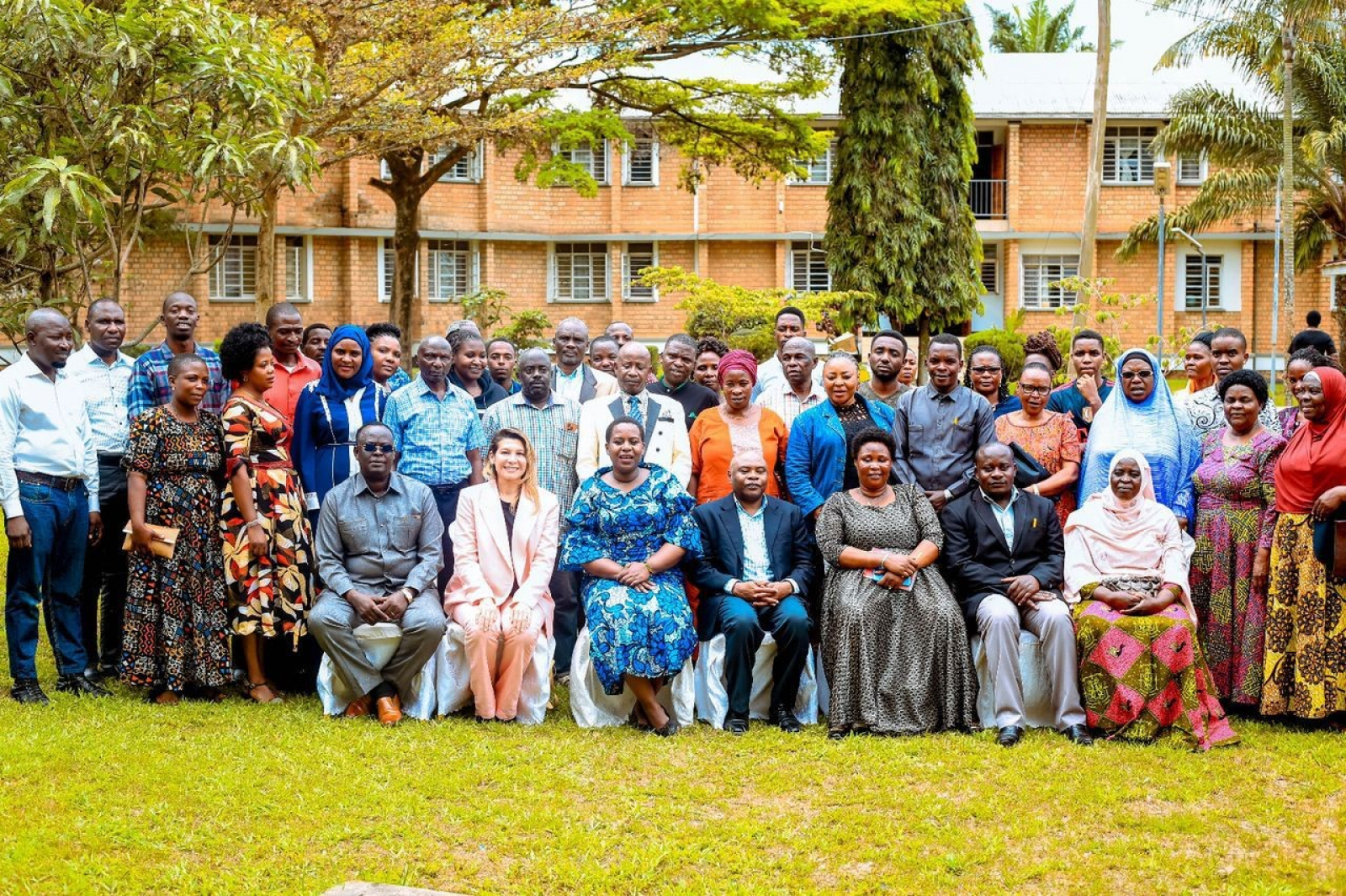
SHARE
Last month in Tanzania, representatives from diverse backgrounds, including civil society organizations (CSOs), women and youth groups, faith-based leaders, regional and ward leaders gathered in the town of Bukoba, Kagera for the Women in Politics Forum. The forum, supported by NDI in partnership with a local non-governmental organization, Omuka Hub, comes at a critical time for the conversation around women’s political participation in Tanzania, as the country is currently in an ongoing political and electoral reform process.
In Tanzania, despite constituting half of the population as of the 2022 Census, women are significantly underrepresented in politics (public office and political party leadership) at both the local and national levels. In 2020, only 26 women were elected to parliament out of 264 seats, and women comprised nine percent of candidates for president, parliament and councilorships. Assuming power in 2021, as the country’s first female leader, President Samia Suluhu Hassan, signaled a new opening for women’s representation in the political and electoral process. In 2022, the Hassan administration supported a Presidential Task Force for Multiparty Democracy, which recognized women’s marginalization and recommended legislative reforms to improve party policies and increase women’s representation. The joint NDI-Omuka Hub forum offered an opportunity for citizens to take advantage of this opening by engaging and providing feedback to government officials, including a Member of Parliament (MP), on the realities of women’s participation and the current reform process.
During a discussion moderated by Honorable Neema Lugangira (founder of Omuka Hub and an MP in Tanzania who is prioritizing policies on gender equality in government), participants pointed out key challenges women face in political participation at the local and national levels. These center on cultural norms and perceptions, as well as violence against women in politics (VAWP). Women at the forum reported experiencing physical and psychological abuse–often heightened during elections. Limited financial resources and support to run for political office, in comparison to their male counterparts, also result in women being less likely to run for office. At the political party level, in some cases, women are perceived to be incapable leaders. A female regional leader noted:
| “We can fill out membership forms to join political parties, but rarely are women nominated to take up leadership positions within the party or as candidates to run for different electoral positions.” - Anastella Alphonce, Bukoba Councilor |
Participants agreed that this is the right time for women to occupy political leadership, with key female leaders (starting with President Hassan) making it a priority to empower women in politics. Newer measures, such as the special seat provisions, support women’s representation in leadership positions at all levels of government and in political party decision-making.
Attendees directly responded to government officials, sharing their opinions on current ongoing reforms. They largely agreed with the Presidential Task Force recommendations to establish a quota for women in party leadership and candidate selection, develop a gender policy, create mechanisms to tackle VAWP, amend procedures for greater transparency in special seat nominations, and for the Council of Political Parties (CPP) to have female representation from each party.
Consensus was also developed amongst CSOs on recommendations regarding increased participation of women in politics presented by the Assistant Registrar for the Office of the Registrar of Political Parties (ORPP). This government agency is tasked with the implementation of the Political Parties Act (PPA) which governs the registration and management of political parties. Attendees at the forum gave their own recommendations for amending gender inclusion policies in the PPA that are currently vague, non-binding, and hard to enforce. These recommendations include creating a gender desk in political parties to recognize and address VAWP complaints, redefining unspecified roles and responsibilities that minimize the authority of special seat MPs to be specified for their jurisdiction and extending privileges of the constituent MPs that have specific duties so that they are not perceived as incapable or merely filling token positions.
The Assistant Registrar said that he will include recommendations from the forum in his proposed amendments to the PPA. He characterized the event as a success and observed that participants had a good understanding of the political reforms happening at the moment. He noted that the voice of citizens is often neglected in political reform processes and recognized NDI’s vital support in ensuring citizen engagement.
NDI will continue to work alongside Tanzanian champions for change, accompany these necessary conversations and provide a platform for the discussion of increasing the participation of women and youth in the political and electoral process in Tanzania.
Author: Annelies Rwebangira, Program Officer, NDI Tanzania & Ferehiwot Mulugeta, Program Associate, Southern and East Africa
Program/Donor: United States Agency for International Development (USAID)/Consortium for Elections and Political Process Strengthening (CEPPS) 'Tushiriki Pamoja Activity'
Related Stories:
Members of Parliament in Tanzania Advocate for Ground-Breaking Reforms
Tanzanian Youth Leaders and the Importance of Census Data for Local Decision Making
Women’s Political Leadership: A Founding Focus
###
NDI is a non-profit, non-partisan, non-governmental organization that works in partnership around the world to strengthen and safeguard democratic institutions, processes, norms and values to secure a better quality of life for all. NDI envisions a world where democracy and freedom prevail, with dignity for all.


